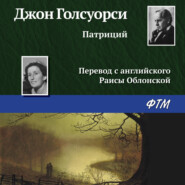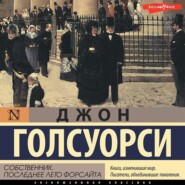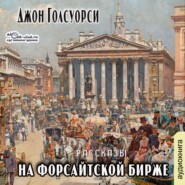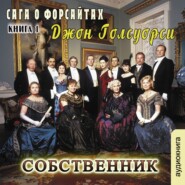По всем вопросам обращайтесь на: info@litportal.ru
(©) 2003-2024.
✖
The Island Pharisees
Настройки чтения
Размер шрифта
Высота строк
Поля
“Oh, we must bump them!” he heard her sigh.
“Do you know my people, Shelton?” said a voice behind his back; and he was granted a touch from the girl’s shy, impatient hand, the warmer fingers of a lady with kindly eyes resembling a hare’s, the dry hand-clasp of a gentleman with a thin, arched nose, and a quizzical brown face.
“Are you the Mr. Shelton who used to play the ‘bones’ at Eton?” said the lady. “Oh; we so often heard of you from Bernard! He was your fag, was n’t he? How distressin’ it is to see these poor boys in the boats!”
“Mother, they like it!” cried the girl.
“Antonia ought to be rowing, herself,” said her father, whose name was Dennant.
Shelton went back with them to their hotel, walking beside Antonia through the Christchurch meadows, telling her details of his college life. He dined with them that evening, and, when he left, had a feeling like that produced by a first glass of champagne.
The Dennants lived at Holm Oaks, within six miles of Oxford, and two days later he drove over and paid a call. Amidst the avocations of reading for the Bar, of cricket, racing, shooting, it but required a whiff of some fresh scent – hay, honeysuckle, clover – to bring Antonia’s face before him, with its uncertain colour and its frank, distant eyes. But two years passed before he again saw her. Then, at an invitation from Bernard Dennant, he played cricket for the Manor of Holm Oaks against a neighbouring house; in the evening there was dancing oh the lawn. The fair hair was now turned up, but the eyes were quite unchanged. Their steps went together, and they outlasted every other couple on the slippery grass. Thence, perhaps, sprang her respect for him; he was wiry, a little taller than herself, and seemed to talk of things that interested her. He found out she was seventeen, and she found out that he was twenty-nine. The following two years Shelton went to Holm Oaks whenever he was asked; to him this was a period of enchanted games, of cub-hunting, theatricals, and distant sounds of practised music, and during it Antonia’s eyes grew more friendly and more curious, and his own more shy, and schooled, more furtive and more ardent. Then came his father’s death, a voyage round the world, and that peculiar hour of mixed sensations when, one March morning, abandoning his steamer at Marseilles, he took train for Hyeres.
He found her at one of those exclusive hostelries amongst the pines where the best English go, in common with Americans, Russian princesses, and Jewish families; he would not have been shocked to find her elsewhere, but he would have been surprised. His sunburnt face and the new beard, on which he set some undefined value, apologetically displayed, were scanned by those blue eyes with rapid glances, at once more friendly and less friendly. “Ah!” they seemed to say, “here you are; how glad I am! But – what now?”
He was admitted to their sacred table at the table d’hote, a snowy oblong in an airy alcove, where the Honourable Mrs. Dennant, Miss Dennant, and the Honourable Charlotte Penguin, a maiden aunt with insufficient lungs, sat twice a day in their own atmosphere. A momentary weakness came on Shelton the first time he saw them sitting there at lunch. What was it gave them their look of strange detachment? Mrs. Dennant was bending above a camera.
“I’m afraid, d’ you know, it’s under-exposed,” she said.
“What a pity! The kitten was rather nice!” The maiden aunt, placing the knitting of a red silk tie beside her plate, turned her aspiring, well-bred gaze on Shelton.
“Look, Auntie,” said Antonia in her clear, quick voice, “there’s the funny little man again!”
“Oh,” said the maiden aunt – a smile revealed her upper teeth; she looked for the funny little man (who was not English) – “he’s rather nice!”
Shelton did not look for the funny little man; he stole a glance that barely reached Antonia’s brow, where her eyebrows took their tiny upward slant at the outer corners, and her hair was still ruffled by a windy walk. From that moment he became her slave.
“Mr. Shelton, do you know anything about these periscopic binoculars?” said Mrs. Dennant’s voice; “they’re splendid for buildin’s, but buildin’s are so disappointin’. The thing is to get human interest, isn’t it?” and her glance wandered absently past Shelton in search of human interest.
“You haven’t put down what you’ve taken, mother.”
From a little leather bag Mrs. Dennant took a little leather book.
“It’s so easy to forget what they’re about,” she said, “that’s so annoyin’.”
Shelton was not again visited by his uneasiness at their detachment; he accepted them and all their works, for there was something quite sublime about the way that they would leave the dining-room, unconscious that they themselves were funny to all the people they had found so funny while they had been sitting there, and he would follow them out unnecessarily upright and feeling like a fool.
In the ensuing fortnight, chaperoned by the maiden aunt, for Mrs. Dennant disliked driving, he sat opposite to Antonia during many drives; he played sets of tennis with her; but it was in the evenings after dinner – those long evenings on a parquet floor in wicker chairs dragged as far as might be from the heating apparatus – that he seemed so very near her. The community of isolation drew them closer. In place of a companion he had assumed the part of friend, to whom she could confide all her home-sick aspirations. So that, even when she was sitting silent, a slim, long foot stretched out in front, bending with an air of cool absorption over some pencil sketches which she would not show him – even then, by her very attitude, by the sweet freshness that clung about her, by her quick, offended glances at the strange persons round, she seemed to acknowledge in some secret way that he was necessary. He was far from realising this; his intellectual and observant parts were hypnotised and fascinated even by her failings. The faint freckling across her nose, the slim and virginal severeness of her figure, with its narrow hips and arms, the curve of her long neck-all were added charms. She had the wind and rain look, a taste of home; and over the glaring roads, where the palm-tree shadows lay so black, she seemed to pass like the very image of an English day.
One afternoon he had taken her to play tennis with some friends, and afterwards they strolled on to her favourite view. Down the Toulon road gardens and hills were bathed in the colour of ripe apricot; an evening crispness had stolen on the air; the blood, released from the sun’s numbing, ran gladly in the veins. On the right hand of the road was a Frenchman playing bowls. Enormous, busy, pleased, and upright as a soldier, pathetically trotting his vast carcass from end to end, he delighted Shelton. But Antonia threw a single look at the huge creature, and her face expressed disgust. She began running up towards the ruined tower.
Shelton let her keep in front, watching her leap from stone to stone and throw back defiant glances when he pressed behind. She stood at the top, and he looked up at her. Over the world, gloriously spread below, she, like a statue, seemed to rule. The colour was brilliant in her cheeks, her young bosom heaved, her eyes shone, and the flowing droop of her long, full sleeves gave to her poised figure the look of one who flies. He pulled himself up and stood beside her; his heart choked him, all the colour had left his cheeks.
“Antonia,” he said, “I love you.”
She started, as if his whisper had intruded on her thoughts; but his face must have expressed his hunger, for the resentment in her eyes vanished.
They stood for several minutes without speaking, and then went home. Shelton painfully revolved the riddle of the colour in her face. Had he a chance then? Was it possible? That evening the instinct vouchsafed at times to lovers in place of reason caused him to pack his bag and go to Cannes. On returning, two days later, and approaching the group in the centre of the Winter Garden, the voice of the maiden aunt reading aloud an extract from the Morning Post reached him across the room.
“Don’t you think that’s rather nice?” he heard her ask, and then: “Oh, here you aye! It’s very nice to see you back!”
Shelton slipped into a wicker chair. Antonia looked up quickly from her sketch-book, put out a hand, but did not speak.
He watched her bending head, and his eagerness was changed to gloom. With desperate vivacity he sustained the five intolerable minutes of inquiry, where had he been, what had he been doing? Then once again the maiden aunt commenced her extracts from the Morning Post.
A touch on his sleeve startled him. Antonia was leaning forward; her cheeks were crimson above the pallor of her neck.
“Would you like to see my sketches?”
To Shelton, bending above those sketches, that drawl of the well-bred maiden aunt intoning the well-bred paper was the most pleasant sound that he had ever listened to.
“My dear Dick,” Mrs. Dennant said to him a fortnight later, “we would rather, after you leave here, that you don’t see each other again until July. Of course I know you count it an engagement and all that, and everybody’s been writin’ to congratulate you. But Algie thinks you ought to give yourselves a chance. Young people don’t always know what they’re about, you know; it’s not long to wait.”
“Three months!” gasped Shelton.
He had to swallow down this pill with what grace he could command. There was no alternative. Antonia had acquiesced in the condition with a queer, grave pleasure, as if she expected it to do her good.
“It’ll be something to look forward to, Dick,” she said.
He postponed departure as long as possible, and it was not until the end of April that he left for England. She came alone to see him off. It was drizzling, but her tall, slight figure in the golf cape looked impervious to cold and rain amongst the shivering natives. Desperately he clutched her hand, warm through the wet glove; her smile seemed heartless in its brilliancy. He whispered “You will write?”
“Of course; don’t be so stupid, you old Dick!”
She ran forward as the train began to move; her clear “Good-bye!” sounded shrill and hard above the rumble of the wheels. He saw her raise her hand, an umbrella waving, and last of all, vivid still amongst receding shapes, the red spot of her scarlet tam-o’-shanter.
CHAPTER III
A ZOOLOGICAL GARDEN
After his journey up from Dover, Shelton was still fathering his luggage at Charing Cross, when the foreign girl passed him, and, in spite of his desire to say something cheering, he could get nothing out but a shame-faced smile. Her figure vanished, wavering into the hurly-burly; one of his bags had gone astray, and so all thought of her soon faded from his mind. His cab, however, overtook the foreign vagrant marching along towards Pall Mall with a curious, lengthy stride – an observant, disillusioned figure.
The first bustle of installation over, time hung heavy on his hands. July loomed distant, as in some future century; Antonia’s eyes beckoned him faintly, hopelessly. She would not even be coming back to England for another month.
.. I met a young foreigner in the train from Dover [he wrote to her] – a curious sort of person altogether, who seems to have infected me. Everything here has gone flat and unprofitable; the only good things in life are your letters… John Noble dined with me yesterday; the poor fellow tried to persuade me to stand for Parliament. Why should I think myself fit to legislate for the unhappy wretches one sees about in the streets? If people’s faces are a fair test of their happiness, I’ d rather not feel in any way responsible…
The streets, in fact, after his long absence in the East, afforded him much food for thought: the curious smugness of the passers-by; the utterly unending bustle; the fearful medley of miserable, over-driven women, and full-fed men, with leering, bull-beef eyes, whom he saw everywhere – in club windows, on their beats, on box seats, on the steps of hotels, discharging dilatory duties; the appalling chaos of hard-eyed, capable dames with defiant clothes, and white-cheeked hunted-looking men; of splendid creatures in their cabs, and cadging creatures in their broken hats – the callousness and the monotony!
One afternoon in May he received this letter couched in French:
3, BLANK ROW WESTMINSTER. MY DEAR SIR,
Excuse me for recalling to your memory the offer of assistance you so kindly made me during the journey from Dover to London, in which I was so fortunate as to travel with a man like you. Having beaten the whole town, ignorant of what wood to make arrows, nearly at the end of my resources, my spirit profoundly discouraged, I venture to avail myself of your permission, knowing your good heart. Since I saw you I have run through all the misfortunes of the calendar, and cannot tell what door is left at which I have not knocked. I presented myself at the business firm with whose name you supplied me, but being unfortunately in rags, they refused to give me your address. Is this not very much in the English character? They told me to write, and said they would forward the letter. I put all my hopes in you.
Believe me, my dear sir,
(whatever you may decide)
Your devoted

















